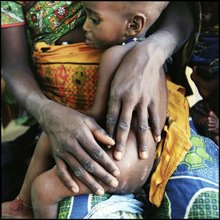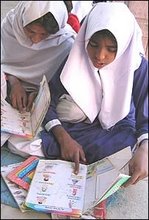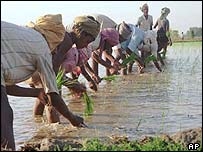PREAMBLE: Over the past 15 years, PacificSci principals have had the opportunity to be involved in aspects of public health development in countries grouped within the Eastern Mediterranean Regional Office of the World Health Organization (WHO/EMRO), specifically Kuwait, Pakistan and the United Arab Emirates (UAE). This has been by virtue of both full time geographically-based work (1998-2003), as well as short term consultancies and collegial links.
These countries and their neighbours in the region face many common and similar challenges in terms of social and economic development, status of women, environmental control and regulation, a highly mobile migrant workforce and other demands of competing in a globalized economy.
Over the past decade especially, the region as a whole has also been dealing with social and political unrest, much of this of an extreme nature, largely resulting from a lack of good governance combined with negative geopolitical dynamics that have given scant regard to the wellbeing of the general populace.
Good public governance, referring to how public institutions function responsively, transparently, and with accountability, is a key mechanism through which the values of development are secured for people. These values include equality of treatment, freedom to choose, opportunities to participate in the process, and not least of all - justice. Such governance recognizes the integrity, rights, and needs of everyone within the state, and is essential to reducing poverty and stimulating growth.[1]
Good governance also embodies the value of “healthy public policy”, characterized by explicit concern for health and equity in all areas of policy and by accountability for health impact. The main aim of health public policy is to create a supportive environment to enable people to lead healthy lives. Such a policy makes health choices possible or easier for citizens. It makes social and physical environments health-enhancing. In the pursuit of healthy public policy, government sectors concerned with agriculture, trade, education, industry, and communications need to take into account health as an essential factor when formulating policy. Healthy public policy benefits populations, communities and individuals.[2]
This brief Reconnaissance consists of two sections: first, the published perspectives of the World Bank and WHO/EMRO, and secondly, our own observations of the emergence of two important networks: public health associations, and membership of national public health institutes in a new global organization.
Note: Minor edits were made to this posting on May 17 and 18, 2012.
PUBLIC HEALTH IN THE MIDDLE EAST
– Regional Perspectives
A DECADE AGO, the World Bank supported a regional conference in Beirut which led to a major report entitled Public Health in the Middle East and North Africa – meeting the challenges of the twenty-first century.[3]
Based on discussion elaborated in chapters of this report, six priorities emerged: 1. Leadership and Political Will 2. A New View of Public Health 3. Data and Surveillance 4. Partnerships and Collaboration 5. Emerging Health Problems 6. Public Health “Best Buys”
The report stated that “the status of public health practitioners is a significant problem. One of the main challenges facing public health in the... region is the recruitment and retention of appropriate skills and expertise, in terms of both quality and quantity.”
The persistence of an outmoded view of public health therefore is part of the challenge in this region, and could be the greatest obstacle to change: a view of public health as an adjunct to the health care system, rather than as a strategic force for a healthy population.
The challenge therefore is to envision what public health throughout the region could become within a reasonable period, say 15-20 years, then determine how to take it there. Insightful leadership with political support can lead this change.
It is on this particular issue regarding outmoded concepts of public health that the following selected extracts from the 2002 World Bank summary of priority issue #2 (above) justify consideration (bullets added and sequence adjusted for emphasis) and are highly applicable to the region:
A New View of Public Health:
• Countries should undertake assessments of their public health functions and capacity in the near future…. steps should be taken to build capacity and broaden the scope of public health beyond the activities of physicians….
• Public health infrastructure should not be an adjunct to curative health systems. Rather it should be part and parcel of a comprehensive health system that blurs the boundaries between curative and public health services.
• There must be greater multisectoral commitment to healthy public policies; this can be accomplished by developing objectives and targets for healthy populations and lifestyles, including the necessary laws and regulations.
• Developing community based health promotion programs can be an effective way to increase the health literacy of communities.
Now moving to a more recent review by World Bank regional specialists [4], disease-surveillance systems as reviewed by the WHO Regional Office WHO/EMRO) were considered mostly inadequate, with insufficient commitment, lack of practical guidelines, overwhelming reporting requirements, lack of transparency, shortage of human resources, and poor analysis of data. It is stated that: “this deficit in the capability to assess and monitor population health will have to be addressed if effective plans for public health capacity building are to be put in place”.
Equally critical, the World Bank reviewers considered that, while many public-health services are well-established, management functions such as inter-sectoral policymaking, public information and education, and quality assurance, are underdeveloped.
Further, when compared with other world regions, the limited interaction between governments and civil society is considered likely to reduce the social dividend by not meeting rising expectations in the population.
The review argued that higher health sector spending will not translate into effective results if investments are not well managed or directed towards cost-effective solutions, and concludes that new institutional capacities and governance structures are needed.
New Public Health Networks
In some countries, there are organized public health professional and lay networks. These are generally found in larger countries, although with varying levels of vitality e.g., national public health associations exist in Egypt, Ethiopia, Iran, Lebanon, Pakistan, Sudan and Yemen. At the other extreme, the Gulf states so far generally lack this type of non-governmental support for public health; these entities typically have much smaller national populations (with the exception of Saudi Arabia with 27.4 million people, of whom some 19 million are nationals). Such associations have the opportunity to affiliate with a long-standing and reputable international body: the World Federation of Public Health Associations (WFPHA).[5]
Note: The six Arab states bordering the Arabian Gulf: Saudi Arabia, UAE, Qatar, Kuwait, Bahrain and Oman form the Gulf Cooperation Council (GCC). Although Iraq is an Arab state and shares a small border with the Gulf, it is generally not included within this grouping.
Interestingly, national public health institutes are also reaching out among themselves, by affiliating with a recently formed International Association of National Public Health Institutes (IANPHI).[6] Among EMRO countries, these include Afghanistan, Iran, Jordan, Morocco, Pakistan and Saudi Arabia. Turkey and Israel are also members of IANPHI, but not included within the WHO-EMRO group of countries (they are considered within WHO-EURO).
In other words, these governmental public health agencies are starting to link up within an international network. According to their website, IANPHI spearheads improvements in national public health systems through a peer-assistance evaluation, grant support and efforts focused on NPHI advocacy, collaboration, and sustainability. It provides direct funding to governments in low-resource countries to build and strengthen national public health capacity through development of NPHIs. It does this through grants to support NPHI to NPHI evaluations, longer term capacity building initiatives, and seed grants to assist particular research agendas.
All this may make it attractive for other Middle Eastern countries to consider both supporting the development of public health associations and also joining this global intergovernmental agency network, particularly those who need to build capacity... and (when it comes down to it) who doesn't?
Developing a national public health association, especially, is a way of strengthening the role of civil society in a domain that can only be in the best interests of the population.
Envoi –Springtime for Public Health in the Middle East?
Prerequisites for health and social development everywhere are peace and justice; nutritious food and clean water; education and decent housing; a useful role in society and an adequate income; conservation of resources and the protection of the ecosystem. These increasingly appear to be the aspirations of Middle Eastern peoples, and indeed throughout the greater Eastern Mediterranean Region.
The vision of healthy public policy is the achievement of these fundamental conditions for healthy living. The achievement of global health rests on recognizing and accepting interdependence both within and between countries. Commitment to global public health will depend on securing the means of international cooperation, especially to act on issues that cross national boundaries.[6]
While the road ahead will have its challenges, and will require new forms of leadership, the international networking that is starting to emerge in the Middle East may well be a forerunner of an “Arab Spring for public health”. If so, this can only be to the ultimate benefit of all who live in the region.
References
1. World Bank. Better Governance for Development in the Middle East and North Africa: Enhancing Inclusiveness and Accountability. 2011. http://web.worldbank.org/WBSITE/EXTERNAL/COUNTRIES/MENAEXT/EXTMNAREGTOPGOVERNANCE/0,,contentMDK:20261216~pagePK:34004173~piPK:34003707~theSitePK:497024,00.html Accessed May 14, 2012.
2. Report on the Adelaide Conference. Healthy Public Policy. 2nd International Conference on Health Promotion April 5-9, 1988 Adelaide South Australia. http://www.who.int/healthpromotion/conferences/previous/adelide/en/index1.html Accessed May 14, 2012.
3. Pierre-Lousie AM, Akala FA, Karam HS. Public health in the Middle East and North Africa: meeting the challenges of the twenty-first century. World Bank Institute. WBI Learning Resources Series. The World Bank 2004.
4. Akala FA, El-Saharty S. [The aWorld Bank, Middle East and North Africa Region, Human Development Sector, Washington, DC] Public-health challenges in the Middle East and North Africa. The Lancet (2006) 367: 961-4.
5. World Federation of Public Health Associations. http://www.wfpha.org/ Accessed May 16, 2012.
6. Public Health Institutes of the World (IANPHI). http://www.ianphi.org/ Accessed May 13, 2012.
FROM a Great Canadian and World Statesman
"A great gulf... has... opened between man's material advance and his social and moral progress, a gulf in which he may one day be lost if it is not closed or narrowed..."
Lester B Pearson
http://nobelprize.org/nobel_prizes/peace/laureates/1957/pearson-lecture.html
Showing posts with label civil society. Show all posts
Showing posts with label civil society. Show all posts
Wednesday, 16 May 2012
Thursday, 15 December 2011
EUROPEAN COUNTRIES RENEGE ON COMMITMENTS TO THE GLOBAL FUND
PREAMBLE:
The track record of developed countries honoring their aid commitments is not impressive (especially the G8 nations)[1]. However, until recently, there was optimism that most would honor their commitments to support the Millennium Development Goals (MDGs).
To briefly revisit the MDGs for those readers who may not recall what they were about, here is a thumbnail sketch: at a United Nations conference in 2000, governments around the world pronounced the MDGs, to be achieved by 2015. Eight goals were constructed (listed below), reflecting the world's main development challenges and responding to the calls of civil society.[2] Within these goals there are 18 targets, complemented by 48 measurable indicators to measure progress towards the MDGs.
Goal 1: Halve Proportion of People in Extreme Poverty and Hunger
Goal 2: Achieve Universal Primary Education
Goal 3: Promote Gender Equality and Empower Women
Goal 4: Reduce Child Mortality by 2/3
Goal 5: Reduce Maternal Mortality by 3/4
Goal 6: Combat HIV/AIDS, Malaria and other diseases
Goal 7: Ensure Environmental Sustainability
Goal 8: Develop a Global Partnership of Development
Last year’s UN Special Session on MDG outcomes provided an important reminder: in relation to Goal 8 (Develop a Global Partnership of Development) there was a message for all donor countries, namely that, without more reliable support from developed countries, several Goals are likely to be missed in many developing ones.[3]
However there is now serious concern regarding the 6th goal, which comes within the remit of a “Global Fund to fight AIDS, Tuberculosis and Malaria”. Tragically, in November 2011, several European entities (Germany, Ireland, Sweden and the European Commission itself), ostensibly in response to fraud in a small number of developing nations (4 out of >120 recipient countries), have frozen or drastically cut back on their funding support to the Global Fund as a whole with the effect that it will not be able to take on any new commitments for a 3 year period.
Although it is understood around the world that the entire European Union is now under existential threat, and therefore unable to make good on their commitments, in our view it is a “bit rich” (to use the vernacular, no pun intended) that these rich nations, whose own financial mismanagement and fraud in some instances led to their own current morass, feel free to tar recipient countries with the same brush.
The documented fraud amounts to $34 million, which represents 0.03% of the Fund’s whole portfolio, and all of the evidence of fraud that was cited in the press was uncovered by the Fund itself after it undertook investigations. Furthermore, the Fund had publicly announced these findings as they were uncovered. There was never any duplicity or attempts to cover up the losses. It would be interesting indeed to see how this compares with the extent and impact of fraud in the European Community itself, especially on the heels of various banking collapses, and national defaults. Pot calls kettle black?
For this issue of PacificSci Global Perspectives, we extract from an objectively critical situation analysis as presented by Results UK, an NGO registered in England, Wales and Scotland.[4]
NOTE: This is our last issue for 2011. Our Year in Review will appear as the first issue for 2012.
References:
1. White F. Development assistance for health – donor commitment as a critical success factor. Can J Public Health (2011)102,6:421-3
2. United Nations Development Programme. About the MDGs: Basics - What are the Millennium Development Goals? http://www.undp.org/mdg/basics.shtml Accessed December 15, 2011.
3. UN General Assembly. 65th Session Agenda Items 115. Special Session on the MDGs. Outcome Document: New York. September, 2010.
4. Supporting the Global Fund – making the case for immediate intervention. Background Sheet 1: RESULTS – the power to end poverty. December 11, 2011. http://results.org.uk/sites/default/files/December%202011%20Background%20Sheet%201%20Supporting%20the%20Global%20Fund.pdf Accessed December 15, 2011.
THE GLOBAL FUND TO FIGHT AIDS, TB AND MALARIA (GF)
Note: This report is extracted verbatim from the work of Results-UK (citation #4 above). While we fully endorse what they have stated, the originality of this analysis belongs entirely to them. We recognize that it was written for a primarily UK audience, but we feel that it deserves global recognition and readership.
The GF is a multilateral agency founded in 2002 and is the world’s largest financer of anti-AIDS, TB and Malaria programs. It operates as a partnership between governments, civil society, the private sector and affected communities. It draws its funding from donor governments, trusts and foundations and distributes that money to implementing agencies. To ensure that GF money goes to where it is needed most, it prioritises countries with low incomes and high disease burdens. Importantly the GF is guided by the principles of accountability and transparency. It focuses explicitly on results and has an outstanding track record for delivering real impacts on the ground.
At the end of 2010 the GF has approved funding of $22 billion for more than 600 programs in 150 countries. Because it has such clear monitoring mechanisms the Fund states that it has distributed 190 million insecticide treated nets to treat malaria, provided TB treatment for 8.2 million people and provided antiretroviral drugs and holistic care for some 3.2 million people, saving 7.7 million lives.
How funding works: the replenishment process
The fund is predominantly bankrolled by contributions from the governments of developed nations. Since it was created in 2002, 95% of pledges have been from these governments (totalling $28.3bn), with the other 5% coming from private sector and philanthropic givers like the Gates Foundation. From 2001-2010 by far the largest contributor to the fund has been the USA, followed by France, Japan, Germany and the UK. In terms of giving as per cent of GNI, Sweden gives the largest proportion, followed by France, Norway, Holland and Spain.
After the initial funding it received for 2002-2004 the GF has gone through a replenishment cycle every three years, with the last of these events taking place in 2010 in New York. The GF went into the New York conference seeking $20 billion to fully fund the fight against the three diseases. Whilst this represented a doubling of contributions from the 2007 replenishment, it was considered as absolutely vital to avoid losing ground to the diseases. Unfortunately, pledges and projections at the conference only ended up totalling $11.68 billion. The result was that the GF needed to seek new funding, could not fund certain high cost programs and had to slow the pace of scale up.
The UK contribution
The UK government has been a strong historic supporter of the Fund. In 2001 the Labour government made a pledge to give £1.36 billion between 2001-2015 and has delivered £1.06bn thus far. After coming to power the new coalition undertook a review of all UK giving to multilaterals and the Fund came out very well, rated in the highest category as providing ‘Very Good’ value for money, which was only given to 9 organisations. In giving the Global Fund a top score, the Multilateral Aid Review (MAR) found its “quality and depth of reporting” were very high, and reported that “standards for financial management and audit” were very high as well. Overall it found the Global Fund to be critically important in the delivery of the MDGs.
As such, the new government has committed to continued giving to the fund at the same levels as the previous administration. The UK has not made a new pledge recently, however, our historically strong stance puts us ahead of many European countries. Civil society organisations across the UK and Europe have been calling on the UK to make a contribution of £840 million between 2011-2013, a figure that would represent a ‘fair share’ of the $20 billion that the GF requested to fill financing needs of partner countries.
What went wrong?
There have been several competing factors that have led to countries withdrawing or withholding their payments to the Global Fund.
1. The financial crisis: The global economic downturn of 2008 has severely hit the GF. With aid budgets being squeezed more tightly than ever before, many countries have chosen to hold back or renege on their commitments to the Fund, citing a variety of causes. As the crisis has continued the ratio of pledges to money actually delivered has steadily worsened, with countries including Spain, Holland, Denmark, Italy, Belgium and the US seriously behind on their commitments. Countries are finding the crisis a convenient excuse not to meet their commitments.
2. Global Fund Corruption: In January this year, corruption in GF programmes was inaccurately and sensationally reported by the Associated Press. Citing losses of $34 million dollars across several countries, the media created a situation in which Germany, Ireland, the European Commission and Sweden all announced that they were withholding funding until investigations into the causes of the losses and how they occurred were carried out.
3. A victim of its own success: Ironically, the Fund’s success up until 2010 has partly led to these problems. The Fund introduced new paradigms in the global health and international development arenas. It established a mechanism which channels resources to fund demand through the submission of evidence based, technically sound TB/Malaria/HIV proposals, and as a result has regularly met and exceeded its targets. As such, scale up in demand has been steep, leaving the Fund needing increasingly more and more funding. When global economics were good, this was a curve that could continue. Now this is clearly no longer the case.
The issue of corruption
Stories began to circulate in January 2011 about money going missing from GF supported programs in nine different countries. The total sums that were misappropriated or unaccounted for totalled around $34 million dollars. As a reaction, Germany, Ireland, Sweden and the E.C all stated that they were withholding money to support pledges. They all cited slightly different reasons – and had slightly different motivations – but all called for the Fund to conduct an investigation into its activities.
The media reports of corruption have been very damaging to the Fund, but it’s important to look at this in detail and put the figures into perspective. All of the evidence of fraud that was cited in the press was uncovered by the Fund itself after it undertook investigations. Corruption was found in 9 out of 33 investigated programs (of 145 the fund administers). In Mali, the country with the greatest losses, the Fund has reclaimed a large amount of that money and secured the convictions of nine civil servants involved in its theft. The Office of the Inspectorate General (OIG) is a completely independent body within the Fund that carries out these investigations. What’s more, the Fund had publicly announced these findings as they were uncovered. There was never any duplicity or attempts to cover up the losses. Joe Liden, a spokesman for the Fund stated that they felt they had been “treated very badly by the media.”
Within the whole of the Fund’s portfolio, the $34 million represents 0.03% of the Fund’s whole portfolio (although only 33 countries were investigated). However, these 9 programs were investigated for the very reason that they were some of the riskiest grants the Global Fund provided. Looking at the most recent set of reviews from the OIG, which analysed over $1b of grants, indicates that across the whole portfolio, no more than 1% of funds have been lost to fraud. This is substantially less than is lost by the UK’s DWP every year.2 However, the sensationalist language used by the media has stuck and the Fund’s reputation as been damaged. The Fund has been through a process of self-evaluation and produced a High Level panel report discussing the problems it faced around fiscal accountability, auditing and investigation practices and has addressed many of the criticisms made by concerned donors.
OUR COMMENT: The ethics of the European Community need to be called into question. It appears that they have held the Global Fund to a higher standard than they themselves could meet, especially given the evidence of everything from bank fraud to gross mismanagement of national finances in several of their own members (Ireland is one of the countries that have reneged on their GF commitments, but isnt this also one of the so-called “PIGS” that have exhibited financial mismanagement?), leading to the current crisis in the Euro. At least one should expect Europe to be honest about this and not play “bully in the pulpit”. Why not lay the blame for reneging on commitments on their own mismanagement, and by extension accept responsibility for any reversals that will result from funding shortfalls in global efforts to combat these diseases over the next 3 years?
We wish all readers the very best for the Holiday Season, and a Happy New Year.
The track record of developed countries honoring their aid commitments is not impressive (especially the G8 nations)[1]. However, until recently, there was optimism that most would honor their commitments to support the Millennium Development Goals (MDGs).
To briefly revisit the MDGs for those readers who may not recall what they were about, here is a thumbnail sketch: at a United Nations conference in 2000, governments around the world pronounced the MDGs, to be achieved by 2015. Eight goals were constructed (listed below), reflecting the world's main development challenges and responding to the calls of civil society.[2] Within these goals there are 18 targets, complemented by 48 measurable indicators to measure progress towards the MDGs.
Goal 1: Halve Proportion of People in Extreme Poverty and Hunger
Goal 2: Achieve Universal Primary Education
Goal 3: Promote Gender Equality and Empower Women
Goal 4: Reduce Child Mortality by 2/3
Goal 5: Reduce Maternal Mortality by 3/4
Goal 6: Combat HIV/AIDS, Malaria and other diseases
Goal 7: Ensure Environmental Sustainability
Goal 8: Develop a Global Partnership of Development
Last year’s UN Special Session on MDG outcomes provided an important reminder: in relation to Goal 8 (Develop a Global Partnership of Development) there was a message for all donor countries, namely that, without more reliable support from developed countries, several Goals are likely to be missed in many developing ones.[3]
However there is now serious concern regarding the 6th goal, which comes within the remit of a “Global Fund to fight AIDS, Tuberculosis and Malaria”. Tragically, in November 2011, several European entities (Germany, Ireland, Sweden and the European Commission itself), ostensibly in response to fraud in a small number of developing nations (4 out of >120 recipient countries), have frozen or drastically cut back on their funding support to the Global Fund as a whole with the effect that it will not be able to take on any new commitments for a 3 year period.
Although it is understood around the world that the entire European Union is now under existential threat, and therefore unable to make good on their commitments, in our view it is a “bit rich” (to use the vernacular, no pun intended) that these rich nations, whose own financial mismanagement and fraud in some instances led to their own current morass, feel free to tar recipient countries with the same brush.
The documented fraud amounts to $34 million, which represents 0.03% of the Fund’s whole portfolio, and all of the evidence of fraud that was cited in the press was uncovered by the Fund itself after it undertook investigations. Furthermore, the Fund had publicly announced these findings as they were uncovered. There was never any duplicity or attempts to cover up the losses. It would be interesting indeed to see how this compares with the extent and impact of fraud in the European Community itself, especially on the heels of various banking collapses, and national defaults. Pot calls kettle black?
For this issue of PacificSci Global Perspectives, we extract from an objectively critical situation analysis as presented by Results UK, an NGO registered in England, Wales and Scotland.[4]
NOTE: This is our last issue for 2011. Our Year in Review will appear as the first issue for 2012.
References:
1. White F. Development assistance for health – donor commitment as a critical success factor. Can J Public Health (2011)102,6:421-3
2. United Nations Development Programme. About the MDGs: Basics - What are the Millennium Development Goals? http://www.undp.org/mdg/basics.shtml Accessed December 15, 2011.
3. UN General Assembly. 65th Session Agenda Items 115. Special Session on the MDGs. Outcome Document: New York. September, 2010.
4. Supporting the Global Fund – making the case for immediate intervention. Background Sheet 1: RESULTS – the power to end poverty. December 11, 2011. http://results.org.uk/sites/default/files/December%202011%20Background%20Sheet%201%20Supporting%20the%20Global%20Fund.pdf Accessed December 15, 2011.
THE GLOBAL FUND TO FIGHT AIDS, TB AND MALARIA (GF)
Note: This report is extracted verbatim from the work of Results-UK (citation #4 above). While we fully endorse what they have stated, the originality of this analysis belongs entirely to them. We recognize that it was written for a primarily UK audience, but we feel that it deserves global recognition and readership.
The GF is a multilateral agency founded in 2002 and is the world’s largest financer of anti-AIDS, TB and Malaria programs. It operates as a partnership between governments, civil society, the private sector and affected communities. It draws its funding from donor governments, trusts and foundations and distributes that money to implementing agencies. To ensure that GF money goes to where it is needed most, it prioritises countries with low incomes and high disease burdens. Importantly the GF is guided by the principles of accountability and transparency. It focuses explicitly on results and has an outstanding track record for delivering real impacts on the ground.
At the end of 2010 the GF has approved funding of $22 billion for more than 600 programs in 150 countries. Because it has such clear monitoring mechanisms the Fund states that it has distributed 190 million insecticide treated nets to treat malaria, provided TB treatment for 8.2 million people and provided antiretroviral drugs and holistic care for some 3.2 million people, saving 7.7 million lives.
How funding works: the replenishment process
The fund is predominantly bankrolled by contributions from the governments of developed nations. Since it was created in 2002, 95% of pledges have been from these governments (totalling $28.3bn), with the other 5% coming from private sector and philanthropic givers like the Gates Foundation. From 2001-2010 by far the largest contributor to the fund has been the USA, followed by France, Japan, Germany and the UK. In terms of giving as per cent of GNI, Sweden gives the largest proportion, followed by France, Norway, Holland and Spain.
After the initial funding it received for 2002-2004 the GF has gone through a replenishment cycle every three years, with the last of these events taking place in 2010 in New York. The GF went into the New York conference seeking $20 billion to fully fund the fight against the three diseases. Whilst this represented a doubling of contributions from the 2007 replenishment, it was considered as absolutely vital to avoid losing ground to the diseases. Unfortunately, pledges and projections at the conference only ended up totalling $11.68 billion. The result was that the GF needed to seek new funding, could not fund certain high cost programs and had to slow the pace of scale up.
The UK contribution
The UK government has been a strong historic supporter of the Fund. In 2001 the Labour government made a pledge to give £1.36 billion between 2001-2015 and has delivered £1.06bn thus far. After coming to power the new coalition undertook a review of all UK giving to multilaterals and the Fund came out very well, rated in the highest category as providing ‘Very Good’ value for money, which was only given to 9 organisations. In giving the Global Fund a top score, the Multilateral Aid Review (MAR) found its “quality and depth of reporting” were very high, and reported that “standards for financial management and audit” were very high as well. Overall it found the Global Fund to be critically important in the delivery of the MDGs.
As such, the new government has committed to continued giving to the fund at the same levels as the previous administration. The UK has not made a new pledge recently, however, our historically strong stance puts us ahead of many European countries. Civil society organisations across the UK and Europe have been calling on the UK to make a contribution of £840 million between 2011-2013, a figure that would represent a ‘fair share’ of the $20 billion that the GF requested to fill financing needs of partner countries.
What went wrong?
There have been several competing factors that have led to countries withdrawing or withholding their payments to the Global Fund.
1. The financial crisis: The global economic downturn of 2008 has severely hit the GF. With aid budgets being squeezed more tightly than ever before, many countries have chosen to hold back or renege on their commitments to the Fund, citing a variety of causes. As the crisis has continued the ratio of pledges to money actually delivered has steadily worsened, with countries including Spain, Holland, Denmark, Italy, Belgium and the US seriously behind on their commitments. Countries are finding the crisis a convenient excuse not to meet their commitments.
2. Global Fund Corruption: In January this year, corruption in GF programmes was inaccurately and sensationally reported by the Associated Press. Citing losses of $34 million dollars across several countries, the media created a situation in which Germany, Ireland, the European Commission and Sweden all announced that they were withholding funding until investigations into the causes of the losses and how they occurred were carried out.
3. A victim of its own success: Ironically, the Fund’s success up until 2010 has partly led to these problems. The Fund introduced new paradigms in the global health and international development arenas. It established a mechanism which channels resources to fund demand through the submission of evidence based, technically sound TB/Malaria/HIV proposals, and as a result has regularly met and exceeded its targets. As such, scale up in demand has been steep, leaving the Fund needing increasingly more and more funding. When global economics were good, this was a curve that could continue. Now this is clearly no longer the case.
The issue of corruption
Stories began to circulate in January 2011 about money going missing from GF supported programs in nine different countries. The total sums that were misappropriated or unaccounted for totalled around $34 million dollars. As a reaction, Germany, Ireland, Sweden and the E.C all stated that they were withholding money to support pledges. They all cited slightly different reasons – and had slightly different motivations – but all called for the Fund to conduct an investigation into its activities.
The media reports of corruption have been very damaging to the Fund, but it’s important to look at this in detail and put the figures into perspective. All of the evidence of fraud that was cited in the press was uncovered by the Fund itself after it undertook investigations. Corruption was found in 9 out of 33 investigated programs (of 145 the fund administers). In Mali, the country with the greatest losses, the Fund has reclaimed a large amount of that money and secured the convictions of nine civil servants involved in its theft. The Office of the Inspectorate General (OIG) is a completely independent body within the Fund that carries out these investigations. What’s more, the Fund had publicly announced these findings as they were uncovered. There was never any duplicity or attempts to cover up the losses. Joe Liden, a spokesman for the Fund stated that they felt they had been “treated very badly by the media.”
Within the whole of the Fund’s portfolio, the $34 million represents 0.03% of the Fund’s whole portfolio (although only 33 countries were investigated). However, these 9 programs were investigated for the very reason that they were some of the riskiest grants the Global Fund provided. Looking at the most recent set of reviews from the OIG, which analysed over $1b of grants, indicates that across the whole portfolio, no more than 1% of funds have been lost to fraud. This is substantially less than is lost by the UK’s DWP every year.2 However, the sensationalist language used by the media has stuck and the Fund’s reputation as been damaged. The Fund has been through a process of self-evaluation and produced a High Level panel report discussing the problems it faced around fiscal accountability, auditing and investigation practices and has addressed many of the criticisms made by concerned donors.
OUR COMMENT: The ethics of the European Community need to be called into question. It appears that they have held the Global Fund to a higher standard than they themselves could meet, especially given the evidence of everything from bank fraud to gross mismanagement of national finances in several of their own members (Ireland is one of the countries that have reneged on their GF commitments, but isnt this also one of the so-called “PIGS” that have exhibited financial mismanagement?), leading to the current crisis in the Euro. At least one should expect Europe to be honest about this and not play “bully in the pulpit”. Why not lay the blame for reneging on commitments on their own mismanagement, and by extension accept responsibility for any reversals that will result from funding shortfalls in global efforts to combat these diseases over the next 3 years?
We wish all readers the very best for the Holiday Season, and a Happy New Year.
Labels:
AIDS,
civil society,
European Commission,
Eurozone crisis,
financial mismanagement,
fraud,
G8,
Germany,
ireland,
malaria,
MDGs,
PIGS,
RESULTS-UK,
Sweden,
TB,
UN
Subscribe to:
Posts (Atom)
INSPIRATIONAL WELCOME ............................... from T.S.Eliot's "Little Gidding"
If you came this way From the place you would come from... It would be the same at the end of the journey...
If you came, not knowing what you came for, It would be the same... And what you thought you came for Is only a shell, a husk of meaning... From which the purpose breaks only when it is fulfilled If at all.


























